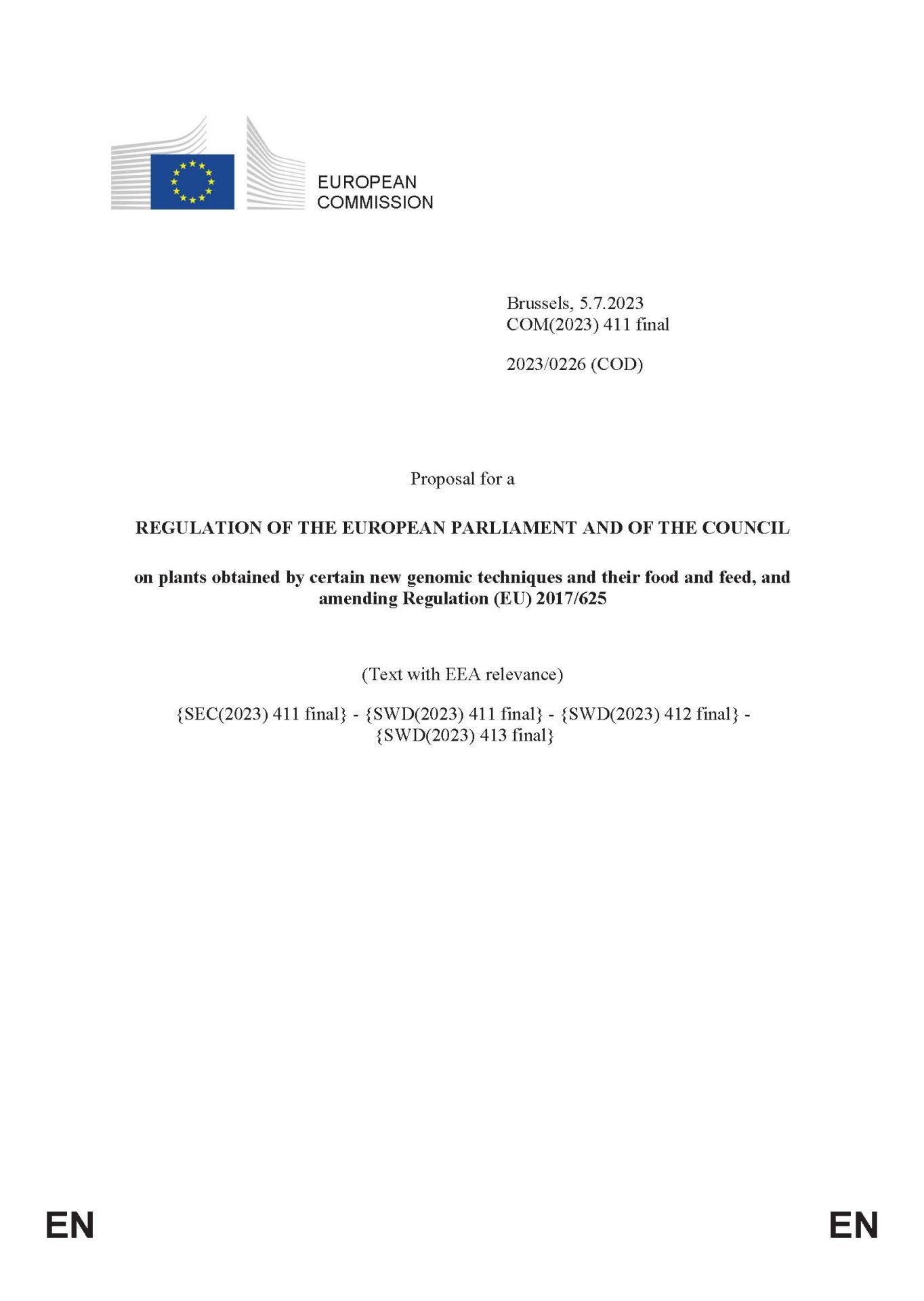EC’s legal proposal for NGT plants
Press statement
6th July 2023
Plants for the Future ETP welcomes the publication of the EU Commission’s legislative proposal for certain New Genomic Techniques, which moves away from a process-based, to a more product-based approach, and has the potential to enable the development and use of conventional-like NGT plants supporting the green transition, thus contributing to sustainability
Plants for the Future ETP (Plant ETP), representing the plant sector from the seed and breeding sector, the farming community and academia, welcomes the publication of the EU Commission’s legislative proposal for certain New Genomic Techniques (NGTs)[1].
Plant ETP particularly appreciates the shift towards a product-based approach, the differentiation between conventional-like (Category 1) NGT plants and other (Category 2) NGT plants, as well as an adapted risk assessment, weighing potential benefits alongside potential risks, on a case-by-case basis.
The legislative proposal has the potential to deliver a future-proof and enabling regulatory framework for the development of NGT plants that cannot be distinguished from plants developed through conventional breeding, or which could occur naturally through spontaneous mutation (Category 1 NGT plants). Such plants have been confirmed by EFSA as posing no new hazards compared to conventionally bred plants[2] and should therefore be regulated similarly.
While the legislative proposal aims to facilitate field trials and placing on the market of Category 1 NGT plants, the verification procedure, as is currently described in the proposal, is vulnerable to be exploited for political reasons, with the real possibility of a de facto block to Category 1 NGT plants. To foster an innovation-friendly environment for European small and medium enterprises (SMEs), it is essential that the verification procedure remains under the jurisdiction of the national competent authorities.
Regarding the list of criteria of equivalence of NGT plants to conventional plants, described in annex 1, Plant ETP acknowledges the importance of providing legal certainty and clear guidelines. At the same time, it is also essential that the criteria against which candidates for Category 1 NGT plants are compared, be representative of what is possible in nature or through conventional breeding to ensure a solid scientific basis.
The proposal to exclude Category 1 NGT plants from organic production is regrettable and without scientific basis. All farmers should have the freedom of choice to use or not NGT plant varieties, according to their needs and preferences. Even more so when many organic farmers have voiced the desire to make use of “conventional-like” NGTs.
There is a real opportunity to enable the research and seed and breeding sectors to help farmers meet the challenges of climate change, improve sustainability, protect biodiversity and reach the ambitious Green Deal goals, while safeguarding both food security and affordability, as well as their own livelihoods. To enable this, innovative solutions and technologies should be available to all production systems that would like to benefit from them, leaving no one behind.
[1] REGULATION OF THE EUROPEAN PARLIAMENT AND OF THE COUNCIL on plants obtained by certain new genomic techniques and their food and feed, and amending Regulation (EU) 2017/625
[2] EFSA 2022 Updated scientific opinion on plants developed through cisgenesis and intragenesis
Download our Press Statement here
